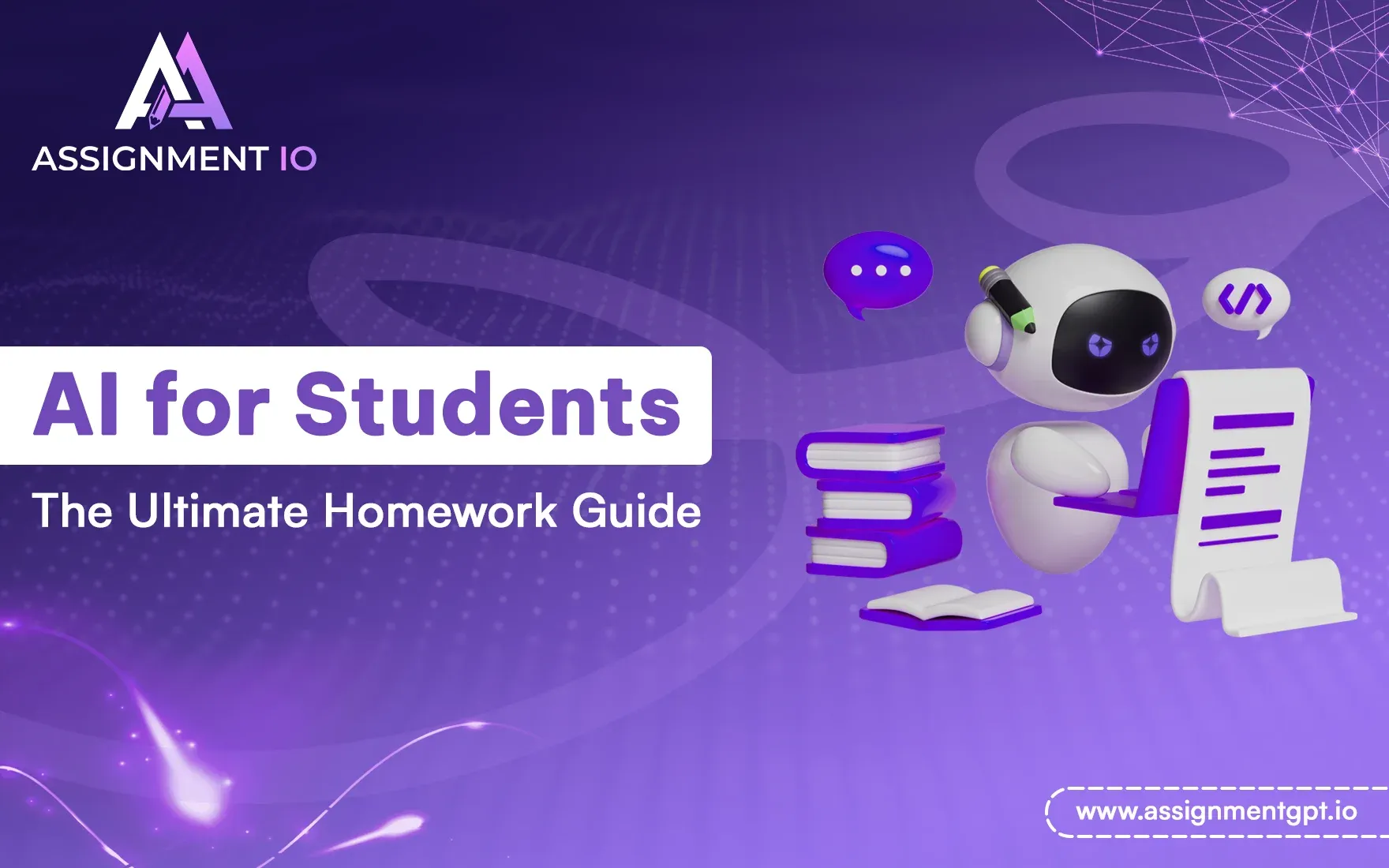AI for Students | The Ultimate Homework Guide

Kevin Gohil
It seems that artificial intelligence is revolutionizing education and providing opportunities to make homework simpler and more efficient. The AI tools are doing more than merely proofreading and analyzing content; they have enabled students to improve their learning experience. But how ethical is using AI for homework? What are the dangers? And how is AI changing the picture for the future of education? This guide will cover all the important points students need to grasp about using AI for homework purposes effectively.
What is the best way to use AI for homework?
AI is being incorporated into students' academic journeys. Here are key areas where AI can assist students in their homework work:
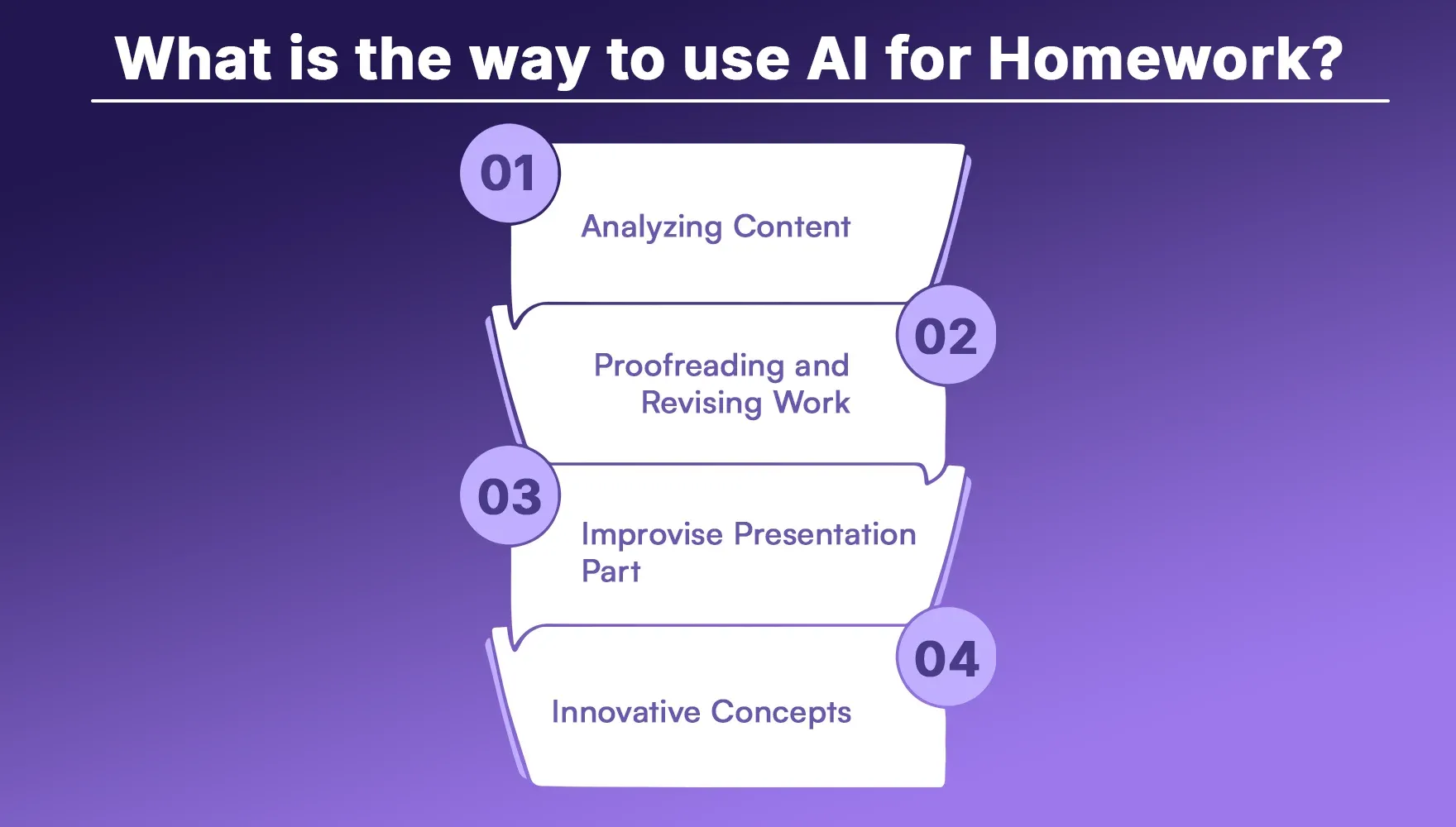
1. Content Analyzers
As AI-enabled tools, ChatGPT, Grammarly, and Quillbot can help students analyze complicated subjects, build summaries, or create perspectives. It can make learning complex concepts easier and faster, thereby streamlining the entire learning process. Analysing voluminous datasets makes the AI understand things better and so does memory retention that allows it to help students achieve success in academics.
2. Proofreading and Revising Work
Grammarly and Hemingway Editor are all AI-based grammar and plagiarism checkers marks that support students in writing better midterm papers. Apart, these tools improve writing by identifying mistakes endorsed by grammar, suggesting alternative ways of constructing arguments, and finally improving clarity in parts of punctuation or style used in the essays. The same devices may also help students improve their works due to academic dishonesty by either preventing or identifying plagiarism from their work."
3. Enhancing the presentation part
Equipped with AI-powered design tools such as Canva and Visme, students can now improve their capability of creating more visually using presentation slides. These AI-generated templates, colour schemes, and layouts allow students to create slides more professionally without needing much time and effort. By increasing the impact of visuals, AI aids students in communicating their ideas and making powerful presentations.
4. Development of new ideas
AI fosters creativity by generating fresh ideas for essays, projects, and research papers. AI implementations such as Sudowrite and Copy.ai allow for different perspectives of looking at the work, organizing content faster, and guiding the student in the arrangement and arguing of points. These tools encourage originality, improve the problem-solving capabilities of the user, and give speed to the research of both academic and creative works.
Also read this article : Does AI make homework easier for students
Is it Ethical to Use Artificial Intelligence for Homework?
AI instruments have certainly made things easier for students when it comes to completing assignments, but the ethical issues surrounding these tools are plentiful and hotly debated. Some considerations are listed below:
1. Academic Integrity
If a student generates anything with AI and passes it off as his own without appropriate citation, it counts technically as academic dishonesty, or plagiarism. Therefore, ethics dictates some responsibility: The student must ensure that credit is given to a source when AI is used to help in developing an original piece of work.
2. Dependence on AI
Excessive dependence on AI can result in softening of students' critical thinking and problem-solving skills. AI may ease the burden of task completion; however, in doing so, students must also ensure that they engage in independent study to hone analytical and cognitive skills.
3. AI as a Learning Aid
If used properly, AI takes the burden off learning; it acts as a helpful assistant rather than replacing human effort. It clarifies ideas, gives feedback, and nurtures the development of learning areas without taking away from the engagement of learners within such domains.
4. Institutional Policies
Various schools and universities have their institution-wide regulations on AI. It is essential for students to be aware of these policies so that they do not fall into unintentional academic misconduct while abiding by ethical and institutional practices.
Smart Strategies for Effectively Using Homework AI
Maximize the advantages of AI having an edge by becoming highly readable to students. In this way, they could:
1. AI can be used for Research and Idea Generation
AI tool helps gather and process relevant information but students should be involved in paraphrasing their definition, manipulation, and articulation of it in their own words. This makes the definition original, ensures strength in understanding, and protects against academic misconducts such as plagiarism.
2. Verify AI-generated Content
Cross-petting always should check facts and data provided by AI for their validity. Such misinformation is possible, and consulting credible sources would provide reliability, developing critical evaluating skills in students while maintaining their academic credibility.
3. Learn through AI Advice
Students should not always blindly accept such suggestions: They should analyze them to improve their writing and comprehension skills. This will, for instance, improve grammar, vocabulary, and the whole student's academic writing skills through understanding why AI makes such recommendations.
4. Use AI As a Tutor
AI tries to explain the concepts rather than just answers on the other hand as Khan Academy AI tutor. Such a system would push students into deeper learning so that they would understand the subject thoroughly instead of just doing the homework assignment.
What risks come with using AI for homework help?
Plagiarism is one of the many risks that can come with using this AI for education.
1. Unintentional Plagiarism
A student who uses assignments generated by an AI tool and then simply copies the content without taking the time to do their own citation runs the risk of committing unintentional plagiarism. Academic integrity demands that students rewrite AI-generated text with their own insights and properly credit outside sources.
2. Loss of Critical Thinking
Many see that by relying on AI, a student's problem-solving and analytical faculties get dulled. An instant answer always occupies more favour than an understanding that grows into an independent thought necessary for breaking complex academic problems.
3. Privacy Risks
Some AI tools collect and store user data, raising privacy concerns. Students should carefully read the privacy policies of any online platform they use, choose trustworthy platforms, and strictly avoid sharing sensitive personal or academic information with AI-based services.
4. Wrong Information
These types of AI responses may contain wrong statements and reflect certain biases and outdated information. Thus, before the students use such information in their assignments, cross-check them against some credible sources for their accuracy.
What is the Future of AI for Homework?
Artificial intelligence will transform education in the following five aspects:
1. Personalized Learning
AI-based education will include customized lesson plans for students tailored to their specific needs and will be able to adapt to the pace at which a student learns. In doing so, the child will retain the concepts he learns better, and the overall performance will improve.
2. AI-Powered Tutors
Live feedback will be given through an AI tutor when there is a requirement of immediate explanation on any complex topic. Mostly referred to as an applied virtual assistant, this technology will be used for instant guidance to make learning more accessible and approachable.
3. Collaborative Enhancement
AI is going to facilitate group work through intelligent tools, automated work processes, and real-time collaboration features. Teamwork, communication, and productivity will improve because students will work more effectively in the academic environment.
4. AI in Evaluations
AI-based grading systems could improve speed and accuracy when evaluating the work of students. In automated feedback, students could see where they went wrong and could improve their skills while also lessening the load on teachers.
How AssignmentGPT IO is shaping AI-based education
AssignmentGPT is a great example of how artificial intelligence is changing the world of homework help. It has taken a four-fold approach to improving homework:-
- It generates structured assignment drafts using artificial intelligence.
- Provides ideas for writing content plagiarism-free.
- Offers subject-specific AI tutoring language for subjects.
- It's a summarization, proofreading, and refining content feature focused on academia.
With the integration of AI in a responsible manner, platforms like AssignmentGPT are making learning accessible as well as making education efficient delivery processes.
Conclusion
AI is an asset for students when ethically and responsibly employed. From the analysis of content, and proofreading to brainstorming, AI solutions are even less than important to the successful learning experience. However, students have to balance the assistance they get from AI with critical thinking and academic integrity. The future of AI in homework is promising with innovation that much personalizes and customizes learning.
FAQs
1. Will AI be able to replace conventional methods of study?
No, AI is intended not to replace the conventional ways of learning but to provide help with it.
2. Is it safe to use an AI for homework?
Yes, but make sure that the content generated by AI is well-formed and meets the standards of academic integrity.
3. What are the best AI tools used for homework?
Some of the examples are Grammarly, Quillbot, ChatGPT, Khan Academy AI, AssignmentGPT.io and many others which help with homework.
4. How can AI help an individual regarding some subjects which are pretty complex?
AI tutors and online learning platforms make stepwise explanations and personalized study plans easy with such complex topics.
5. Will there be AI in future classrooms?
Definitely, AI in the near future will significantly contribute to personalized learning and automated assessment activities within a learning teaching environment.
Latest Blog's
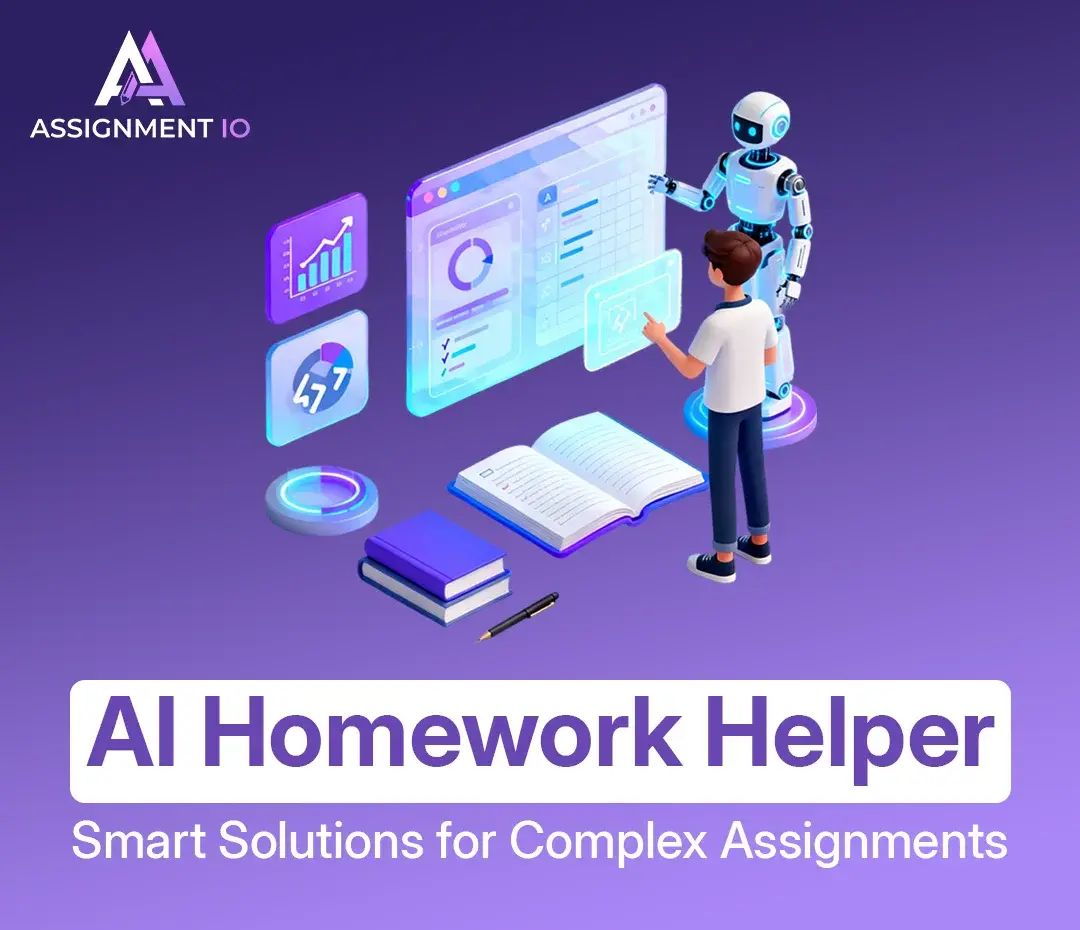
AI Homework Helpers offer fast solutions, personalized learning, and round-the-clock study support for students in every subject.

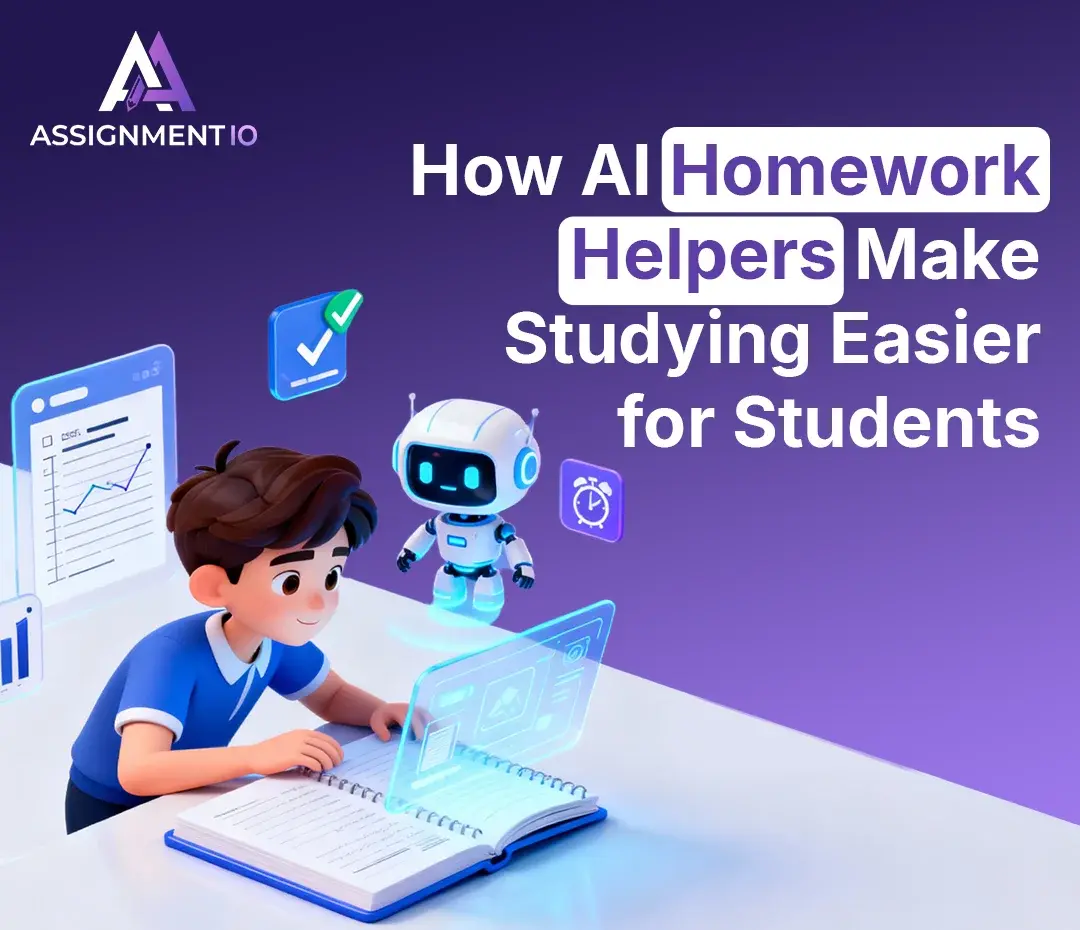
Master exams with superior scores and less study time. Step-by-step tips using ChatGPT, Khanmigo, and Quizlet.

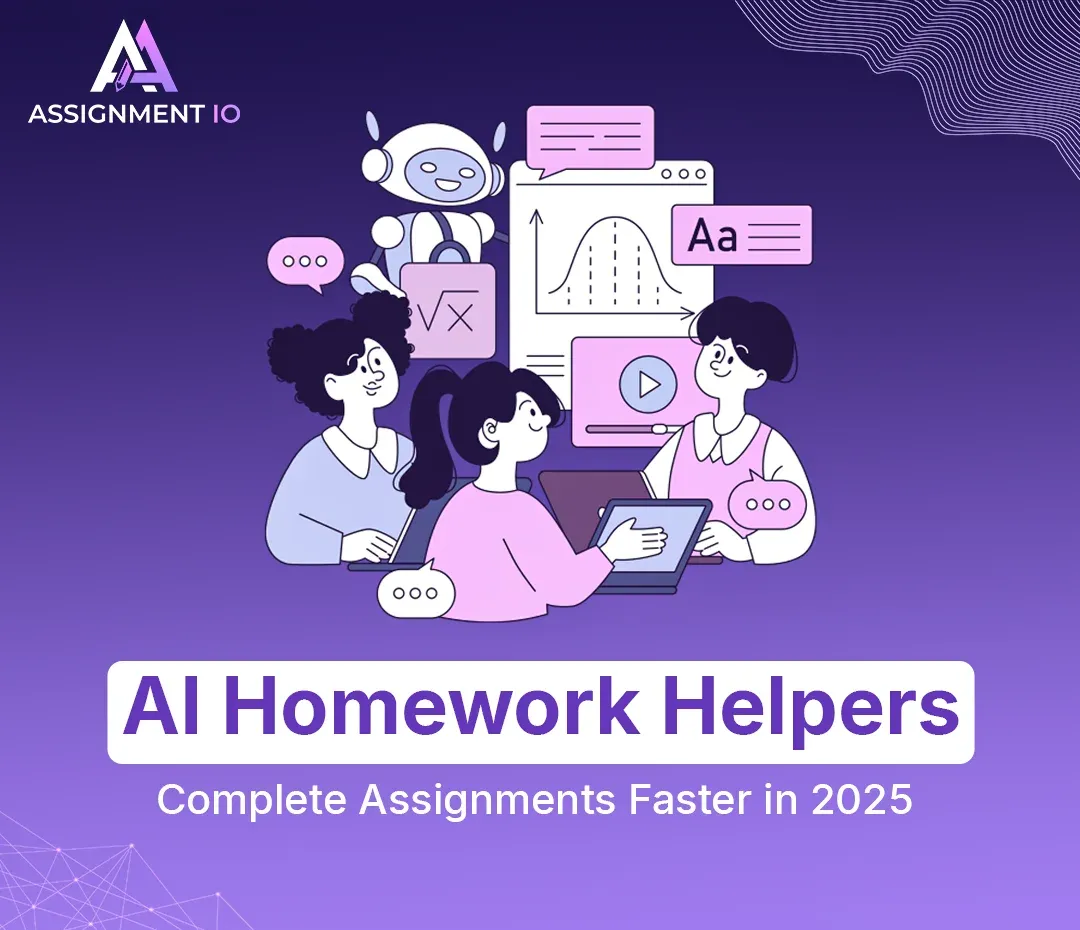
AI homework helpers streamline research, writing, and studying so students learn faster and complete assignments with less stress.

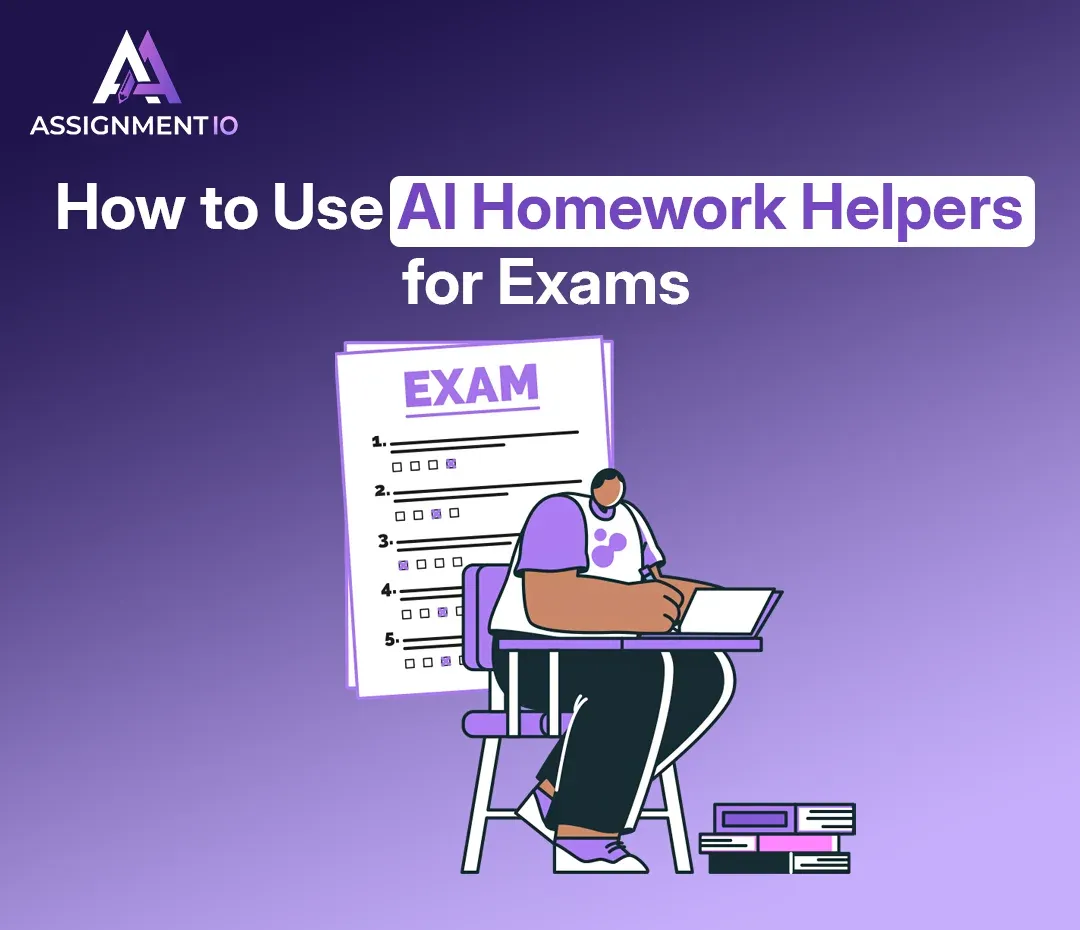
Master exams with superior scores and less study time. Step-by-step tips using ChatGPT, Khanmigo, Quizlet.

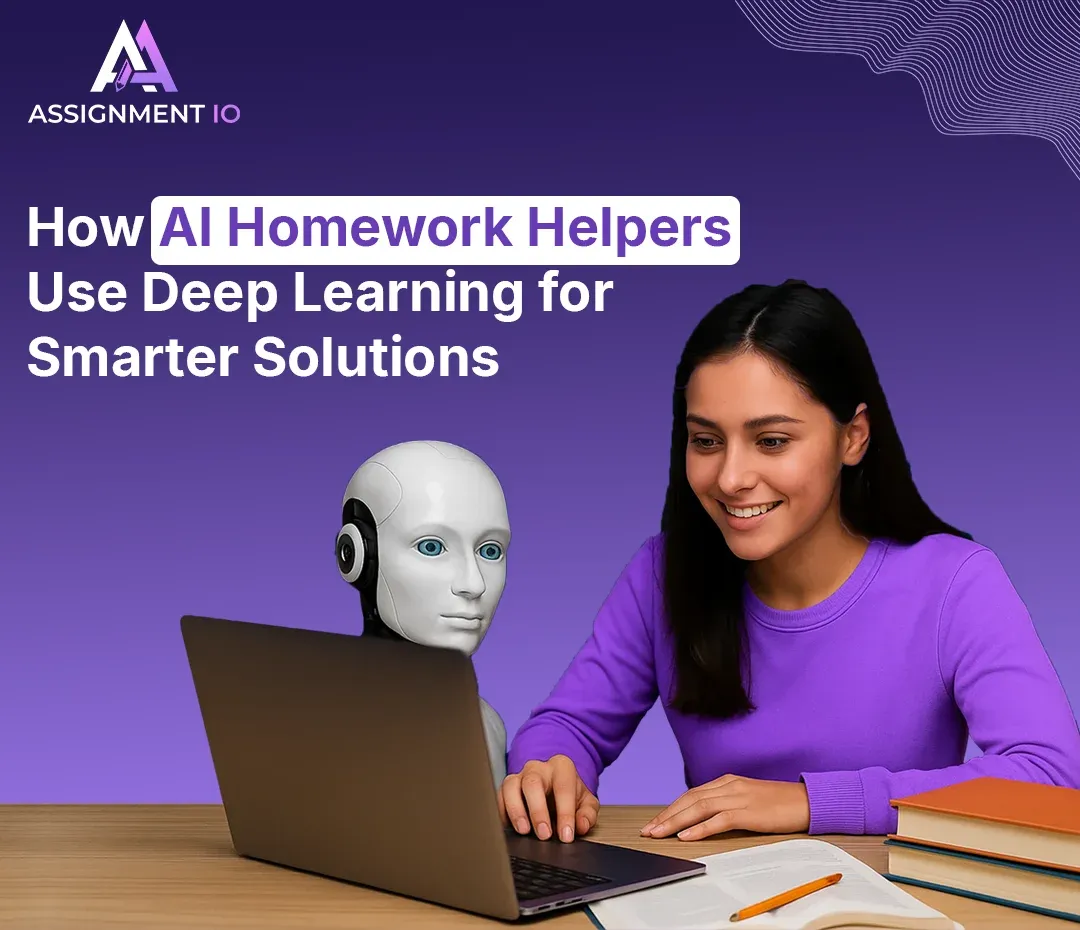
How deep learning makes AI homework helpers smarter, faster, and more personalized for students.

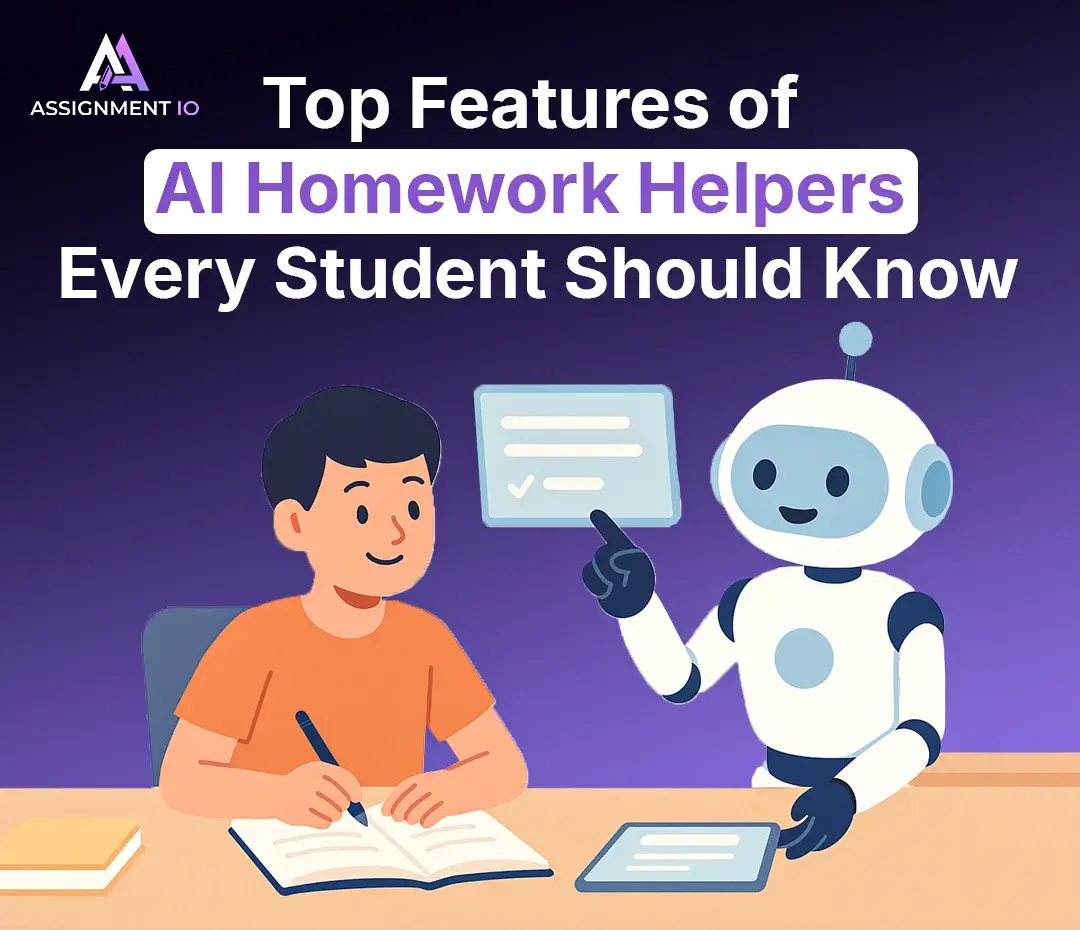
How AI homework helpers save time, boost learning, and provide personalized study support.

